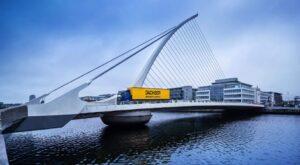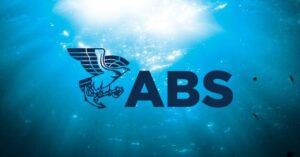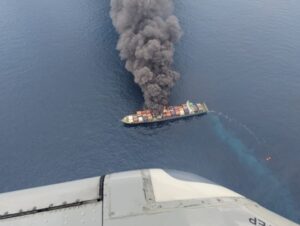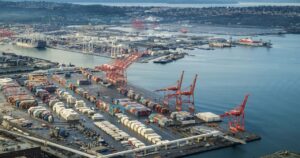The Maritime and Port Authority of Singapore (MPA) has renewed its call for greater collaboration in shipping decarbonisation.
At the organisation’s Accelerating Decarbonisation Conference, the MPA signed three Memorandums of Understanding (MoU) with two green shipping consortiums on the ammonia valve-chain.
The first agreement saw the MPA partner with the ITOCHU Corporation, Enex, Mitsui O.S.K. Lines (MOL), Pavilion Energy, TotalEnergies, Marine Fuels, and VOPAK Terminals on establishing an ammonia fuel supply.
This MoU is a key element of an integrated project that included the development of ammonia fuelled bulk carriers by ITOCHU and other partners.
The second agreement with ITOCHU and 15 other port authorities, R&D centres and shipping and energy companies aims to establish a platform the parties can use to exchange views and harmonise ammonia bunkering safety guidelines in the respective ports.
The final MoU saw the MPA join with the SABRE consortium, comprising of the American Bureau of Shipping, Fleet Management Limited, Kawasaki Kisen Kisha, Ltd. (K-Line), Keppel O&M, A.P. – Moller Maersk (Maersk), the Maersk Mc-Kinney Møller Center for Zero Carbon Shipping, and the Sumitomo Corporation on developing an integrated ammonia supply chain.
The main goal of the agreement is to commence ammonia bunkering within this decade.
“In our rapidly evolving interconnected world, we need international partnerships and a robust ecosystem of partners to decarbonise,” said Kenneth Lim, Assistant Chief Executive of the MPA.
“On a parallel track, we also continue to innovate the future of shipping operations with autonomous shipping being one of the long-term targets, to build resilience in the maritime sector.”
At the IMO-Singapore Future of Shipping Conference, the MPA and the International Maritime Organization (IMO) launched NextGEN Connect – a database which aims to bring industry stakeholders, academia, and global research centres together to offer inclusive solutions on maritime decarbonisation for trials along specific shipping routes.
This marks the next phase of the NextGEN initiative which was initially set up in September 2021 with the roll out of the NextGEN web portal.
Under the database, diverse stakeholders will be invited to propose robust methodologies to jointly develop, on a pilot basis, route-based action plans to reduce greenhouse has (GHG) emissions between specific points along a shipping route in the Asia-Pacific region.
“It is important for public and private stakeholders to work together in a collective and inclusive manner globally to accelerate the maritime sector’s transition towards a low-carbon future,” said S Iswaran, Minister of Transport and Minister-in-charge of Trade Relations.
“NextGEN Connect serves as a collaborative platform that matches the challenges of sustainable shipping to diverse solution providers across borders and industries. The platform also shares innovative and successful projects that address common problems in shipping worldwide. In this way, no one is left behind on the access to creative sustainability solutions in achieving the goals of the Initial IMO GHG Strategy.”

In February, the MPA also signed an MoU with the Directorate General of Sea Transportation (DGST).
Both parties agreed to extend their cooperation on human resources development of the government offices in the maritime field for the next three years.








